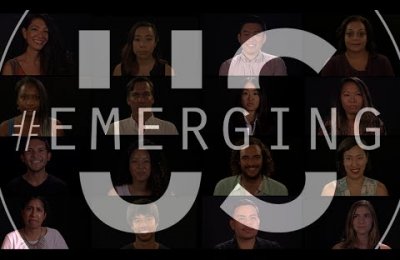Journalism Professor Dan Birman was quoted in a Real Screen West article by Barry Walsh that examines The Television Academy’s 2012 creation of a Reality Peer Group and how it may affect this year’s Emmy Awards.
In addition to his work at USC Annenberg, Birman is a documentary producer, member of the Academy of Television Arts & Sciences, governor of the Documentary Peer Group and chair of the Academy’s membership committee.
Walsh described how the Academy’s separation of the formerly known Non-Fiction Peer Group into the Reality Peer Group and the Documentary Peer Group became a necessity to ensure reality programming and the teams behind it have a voice and receive proper recognition.
“As the Academy watched reality become a potent programming force not just in America but globally,” Walsh wrote, “it became evident to an increasing number of members that it deserved clearer representation.”
“For some in the Academy, there wasn’t a real strong sense [several years ago] that [reality programming] was a form that was going to last,” Birman said.
In the beginning, Birman described, the fact that reality was traditionally non-scripted was enough to categorize its professionals in the Non-Fiction Peer Group. As the genre began to grow, the numbers in the peer group grew too and eventually it became apparent the genre was lacking recognition.
Walsh also spoke with Jon Murray, Bunim/Murray Productions chairman and governor of the Reality Peer Group. Murray attributed Birman’s leadership with facilitating the separation. Meetings lead by Birman with various departments, committees and key staff helped what at first was a huge push for acceptance seem obvious when the time came for a vote.
“It was a push to gain acceptance for the idea within the governance of the Academy,” wrote Walsh in a summary of Birman’s interview, “but mainly due to concerns over how adding another peer group to the 29 already housed within it would impact processes.”
Walsh went on to describe resulting concerns with voting and talk within the Academy of potentially creating subcategories within the new reality programming distinction.








